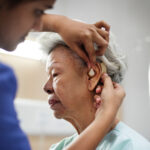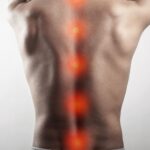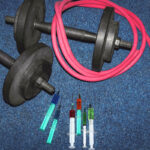
Understanding the Nutrition Guidelines for Successful Duodenal Switch Surgery
Surgery can be a life-changing event, especially for those considering bariatric surgery options such as a duodenal switch. A duodenal switch is a popular choice for individuals seeking weight loss solutions. To ensure the best possible outcome, it’s vital to follow essential nutrition guidelines after the surgery. This article will provide you with practical advice for adjusting your diet and lifestyle to support your overall health and weight loss goals post-surgery.
A New Approach to Eating
After undergoing a duodenal switch, your body will require a new way of absorbing and processing nutrients. This surgery involves reducing the size of your stomach, which will result in a smaller appetite and reduced food intake. The remaining portion of your stomach is then connected to part of your small intestine, bypassing most of your small intestine’s length. As a result, you will need to make significant changes to your eating habits to support your overall health and weight loss goals.
Focus on Protein
One of the critical components of your post-duodenal switch diet is protein. Prioritize lean sources of protein, such as chicken, turkey, fish, eggs, and low-fat dairy products. A high-protein diet helps maintain muscle mass, promotes healing, and supports your immune system. Aim for a minimum of 60-80 grams of protein daily, divided into small, frequent meals.
Consume Whole, Nutrient-Dense Foods
Duodenal switch surgery alters the way your body absorbs certain nutrients, which may lead to deficiencies if not managed properly. Include a variety of nutrient-dense foods such as vegetables, fruits, lean protein sources, and healthy fats in your daily meals. Additionally, avoid processed and high-sugar products, as they add little to no nutritional value to your diet.
Hydration Matters
Staying well-hydrated is a crucial aspect of maintaining your overall health. Proper hydration helps prevent various complications like constipation, which can arise if you’re not consuming enough water. Aim for a daily water intake of 64 ounces or more, and limit your caffeine and alcohol intake, as they can be dehydrating.
Supplements are Essential
Nutrient deficiencies can lead to long-term health issues, so it’s vital to supplement your diet after a duodenal switch. Speak with a qualified healthcare provider for a duodenal switch in Mexico to determine the right supplements for your specific needs. Generally, you’ll need to take a multivitamin, calcium, iron, and vitamin D supplement daily if recommended.
Build a Supportive Environment and Lifestyle
In addition to the nutritional aspect, it’s essential to establish a supportive environment that aligns with your new way of living and eating habits. Joining a support group, staying connected with your healthcare team, and maintaining a regular exercise routine can contribute to a successful recovery and long-term weight loss success. Here are some tips for building a supportive environment and lifestyle:
- Connect with others who have undergone duodenal switch surgery. Share your experiences, recipes, and tips for success.
- Stay in touch with your healthcare team and attend follow-up appointments regularly.
- Incorporate physical activity into your daily routine. Start gradually and increase the intensity as you recover.
- Surround yourself with a strong support system of friends and family who will uplift and motivate you on your weight loss journey.
By following these nutrition guidelines and building a supportive environment and lifestyle, you can maximize the benefits of your duodenal switch surgery. Additionally, if you are someone in the preparation stage for the surgery, you may also check out the difference between SADI And DS to make a further informed decision.
To Sum Up
Adopting a well-balanced and carefully planned diet is crucial to your health and success after a duodenal switch surgery. Focus on high-quality protein sources, nutrient-dense foods, hydration, and essential supplementation, along with a supportive lifestyle, to reap the benefits of your life-changing decision. With appropriate guidance from healthcare professionals and a commitment to maintaining long-term healthy habits, you can profoundly transform your life and well-being post-surgery.











